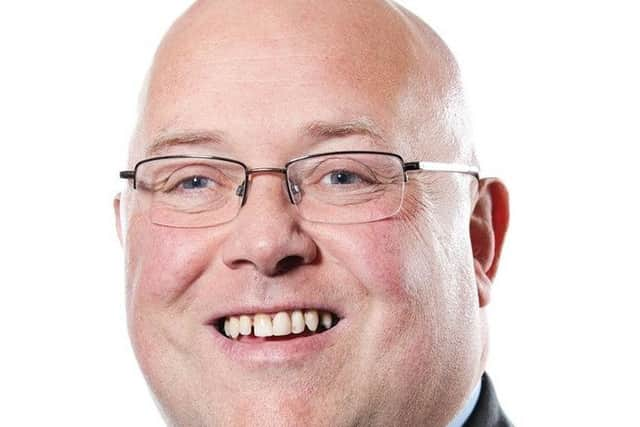'˜Tobacco and alcohol are a blight on Sunderland' - city leaders debate plans to tackle £94.6million smoking problem


Although Sunderland’s smoking rate has dropped from 24.6% in 2010 to 18% in 2016 – it’s still higher than the 15.5% England average.
In a bid to meet a 5% government target by 2025, the city council’s health and wellbeing board agreed to plans to tackle the “priority” issue.


Advertisement
Hide AdAdvertisement
Hide AdCoun Miller, who sits as chairman of the board, stressed the importance of meeting reduction targets for both smoking and alcohol.
“Tobacco and alcohol blight us,” he told health bosses at the Sunderland Civic Centre meeting.
“The cost to families and the city because of the cost of dealing with it is enormous.”
A council report – presented to the board – added the annual cost of smoking to Sunderland is £94.6million.
Advertisement
Hide AdAdvertisement
Hide AdPremature death, loss of productivity and NHS costs are the biggest bills with passive smoking and smoking-related fires playing their part.
The social care system is also affected with thousands of extra patients receiving care from Sunderland City Council (SCC), private providers or relatives/ friends as a result of smoking.
SCC’s director of public health Gillian Gibson said meeting the five% target would need a “big shift” but could be achieved by working together.
Key proposals to tackle the issue range from health bosses working with trading standards to tackle the supply and demand of counterfeit tobacco to awareness campaigns.
Advertisement
Hide AdAdvertisement
Hide AdOther recommendations included extra support for vulnerable and low income residents, licensing restrictions and promoting e-cigarettes as a quitting aid.
While a recent Public Health England study concluded e-cigarettes are less harmful than tobacco, some health board members voiced concerns about the long-term effects of the devices.
Clinical chairman of Sunderland’s Clinical Commissioning Group, Dr Ian Pattison, said that it was important to be “honest” about the unknown effects of e-cigarettes.
“When cigarettes came out we told people they were safe. History teaches us we get things wrong,” he said.
Advertisement
Hide AdAdvertisement
Hide Ad“It’s a short-term method to quitting rather than it being safe.”
But deputy council leader Michael Mordey spoke in support of e-cigarettes which helped him quit smoking after several failed attempts.
“It absolutely works, I would definitely recommend it,” he said.
Coun Miller added: “If e-cigarettes are helping people to come off cigarettes we have to support it because of the reduction of harm.”
Advertisement
Hide AdAdvertisement
Hide AdOther ideas to tackle smoking included social media campaigns targeting young people and the “de-normalisation” of smoking for adults and children.
This includes preventing e-cigarettes becoming a route into smoking by working with trading standards to stop sales to under 18s.
Fact File
Sunderland’s smoking prevalence rate stands at 18% for 2016/17 – slightly higher than the national average of 15.5 per cent.
In 2016/17, 487 women in Sunderland were recorded as smoking at the time they gave birth – equating to 17.2% and almost double the England average of 10.7%.
Advertisement
Hide AdAdvertisement
Hide AdThe highest smoking levels in Sunderland are Redhill, Pallion, Castle, Hendon, Washington North, Sandhill, Southwick, Millfield, St Annes and Hetton.
The estimated cost of increased social care in Sunderland from smoking – based on the size of over 50s smoking population – is £7million.
Chris Binding , Local Democracy Reporting Service